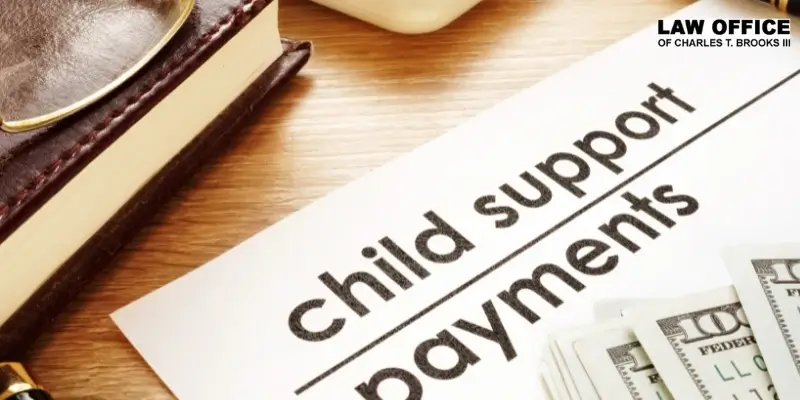|
|
Last Modified on Sep 04, 2025
When parents live separately, they must still maintain their responsibility to financially provide for their child. Child support payments are ordered to ensure that it happens. These payments are necessary for the care of a child, but they can also be financially stressful for parents. Many parents beginning these cases want to know, “What is the average child support payment in South Carolina?”
The Average Child Support Payment
Every child support case is unique, and the amount you may pay or receive depends on your income, the income of the other parent, the child’s needs, and many other factors.
The South Carolina Department of Social Services (DSS) reports that the average distribution of child support payments is $458.75 in South Carolina as of June 2025.
However, this average will not tell you the likely amount you may pay or receive. The state’s guidelines provide basic support obligations between $100 and $7,290, depending on the number of children who need support and the combined gross income of both parents. However, these amounts are not monthly payments but the costs of child support that are split between parents.
The state DSS child support program collected more than $304 million and helped more than 196,600 children in the federal fiscal year 2024. Approximately 225,000 child support cases are paid through the state courts, and 70% of those cases are supported by the state’s DSS.
According to the DSS, as of June 2025:
- Nearly 38% of child support payments were between $300 and $600.
- Approximately 24% of payments were between $150 and $300.
- A little over 16% of cases were for payments under $150.
- A little under 16% of cases paid between $600 and $1,000.
- Only approximately 6% of the state’s child support cases were more than $1,000.
How Is Child Support Calculated?
Child support considers the following factors:
- The basic needs of the child
- Healthcare costs
- Childcare costs
- Extraordinary medical costs
- Each parent’s income
- The percentage of the total income each parent provides
- The custody arrangement
The goal of child support is to provide more similar living standards between homes, not to ensure each parent has the exact same resources. When one parent has primary custody of children, they take on more of the costs of raising a child. Support payments ensure the noncustodial parent also provides for some of these costs.
For example, if parents have an adjusted combined gross income of $5,000 per month and are providing support for two children, the basic support obligation is assumed to be $1,226, plus the cost of childcare and healthcare.
If one parent provides 40% of the gross monthly income, they are responsible for 40% of this $1,226, plus costs, while the other parent is responsible for 60% of the $1,226. If the first parent has primary custody, then the other parent pays this 60% amount each month.
If parents have joint custody or split custody, it becomes more complicated. The percentage of shared custody each parent has is considered in determining how much support obligation one must pay. In split custody arrangements, support payments for each child are calculated separately.
Deviations From the Standard Child Support
In unique cases, the court may alter the child support award if the usual guidelines are considered to be unjust or inappropriate. You must show evidence of this fact. The court may consider deviation for factors such as:
- Families that have more than six children, which is the maximum the basic support obligation accounts for
- Consumer debts that either parent has
- The equitable distribution of property in a divorce
- Education costs for a spouse’s children, such as for schools with tuition
- Extraordinary medical or dental expenses that either parent or a child has that are not reimbursed
- Required deduction for retirement pensions or union dues
- Existing support obligations for other dependents who live with the noncustodial parent
- A child’s significant available income
- A significant disparity of income between parents, where the noncustodial parent makes less than the custodial parent
Other factors can result in the total child support obligation being higher or lower than the usual guidelines.
FAQs
How Is Child Support Calculated in South Carolina?
South Carolina uses the income shares model to calculate child support, which means it considers the gross income of each parent and each parent’s percentage of income in the gross combined income. It also considers the custody arrangement if each parent spends significant time with their children. The court calculates the basic level of support needed for the number of children, then splits that.
How Long Does a Parent Have to Pay Child Support in South Carolina?
A parent paying child support in South Carolina must follow the child support order until the court dismisses the order. You can petition for the court to dismiss the order when the child turns 18 or is emancipated. Emancipation can occur through marriage or the decree of the court. However, while you are able to file the petition, the court may not grant it. If a child is still in school or otherwise needs support, support will likely continue.
Do You Have to Pay Child Support if You Have 50/50 Custody in South Carolina?
Yes, you may have to pay child support if you have 50/50 custody in South Carolina, although it depends on your circumstances. If you have a much higher income compared to your co-parent, it is likely that you will have to pay support. Even if you and your co-parent have equal income, there may be situations where one of you must pay support. Some costs cannot be split equally, like healthcare, so support payments would ensure each parent pays half.
Why Do I Need to Hire a Child Support Lawyer in South Carolina?
When you hire a child support lawyer in South Carolina, they can advocate for your financial interests and the interests of your child. Child support payments are crucial to supporting your child, but they should not be financially unfair to either parent. When you work with an attorney, they can calculate fair support and advocate for that outcome. They can represent you in court.
Getting Experienced and Dedicated Legal Care in South Carolina
A skilled attorney understands the child support laws that apply to your situation and whether deviation from the normal guidelines would be appropriate. At the Law Office of Charles T. Brooks III, we help protect you and your family’s future. Contact us today.




